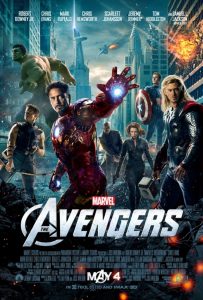This sequel to Marvel Zombies 3 (as opposed to the series in general, because the third volume went off in an entirely new direction, you see) is interesting not for being a good zombie story (it was not bad, but it was also not good), but for being an archaeological study of the period of Marvel that I’m reading right now. The main characters are chock-full of the Marvel horror experiment: Morbius the Living Vampire![1], Jack Russell, the Werewolf by Night, Simon Garth, the [voodoo type of] zombie, Man-Thing, Daimon Hellstrom, Son of Satan, and, okay, some witch chick that I haven’t yet heard of. But my point is, these characters are wandering in and out of all kinds of crossovers with the comics I am reading (June 1976, now), and have titles of their own that all started since 1974. I am honestly surprised at how many of them have stuck around, though there are certainly changes, as I think there would have to have been. ‘Cause, really.
Alas, after all the interesting set-up that I speculated might be coming from the previous volume, Marvel Zombies 4 was a pretty straightforward fight to avert apocalypse. That certainly has its place in comics, unquestionably, but after setting up the MZ continuity to relate to horror and destruction and the existential angst of wanting to be a good guy but virally failing, watching some world fight off an incursion without any examination of the deeper causes of things and without… well, okay, in their defense, the book where we lose is already written, so putting that scenario on a new world is redundant. But I still say that using the MZ world as a springboard for “look, an apocalypse to avert!” is too, and I guess that’s why I was disappointed. Man, I wish they’d used the space to explain what the fuck is actually going on instead. Particularly if they’re going to insist on giving it religious overtones in the first place. Religious overtones = “there is a responsible party”, not “random happenstance in the universe, what are you gonna do?” So use that, Marvel Zombie authors!
On the bright side, the end of the book contained black&white issue 1 of Tales of the Zombie, which was a lot grimmer and a lot more nudity-filled than I expected a Marvel title to have ever been. Plus, it was pretty decent, even without its own more direct version of well-timed archaeology. I still won’t mind just watching these characters interact with my superhero continuity instead of actually reading about them too, but I’m at least getting a clearer picture of why people would have.
[1] I mean, they don’t themselves use the exclamation point as part of the name, but I cannot see how to say that without planning on being excited about it, and so.
 t’s been I suppose weeks since I actually saw The Avengers, which is as personally frustrating as it is lame. But the larger problem (even though I’ve seen it twice) is that it makes it hard to remember any specific discussion I may have wanted to engage. So, obviously it was good. You already know that because I saw it twice. (Savvy viewers may also have known it because of what a good job has been done with the various properties leading up to this moment, or because they’ve watched Joss Whedon’s writing/direction in other formats.)
t’s been I suppose weeks since I actually saw The Avengers, which is as personally frustrating as it is lame. But the larger problem (even though I’ve seen it twice) is that it makes it hard to remember any specific discussion I may have wanted to engage. So, obviously it was good. You already know that because I saw it twice. (Savvy viewers may also have known it because of what a good job has been done with the various properties leading up to this moment, or because they’ve watched Joss Whedon’s writing/direction in other formats.)